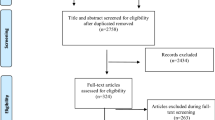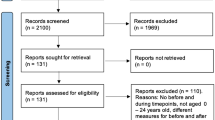Abstract
Medical guidelines define asthma as a chronic lung disease usually treated with daily, preventative medication. A significant proportion of asthma sufferers, however, reject understandings of asthma as chronic, based on their experiences of bouts of breathlessness that are frightening but often episodic and short-lived. This paper considers the experiential aspects of asthma among New Zealanders and explores the interplays between pharmaceutical temporalities and the temporalities of respiratory distress. Focusing on asthma sufferers who eschew preventative medication, I argue that while standardized treatment programs assume a particular mode of reckoning time, sufferers can engage in radically different ways of temporalizing the symptom and the subject, indicating the need for a new conceptualization of what “non-compliance” may entail.
Similar content being viewed by others
Notes
With the assistance of five graduate students, semi-structured interviews were conducted with 40 adult sufferers and parents of children with asthma; 36 respiratory specialists, general practitioners, nurses, and other medical professionals; and six alternative health providers. Ethics approval was granted by the University of Auckland. Some of the examples of asthma sufferers’ and medical professionals’ perspectives discussed here appear in Trnka (2017) but were not analyzed in relation to temporality in that text.
In highlighting asthma sufferers’ own positioning of themselves vis-à-vis pharmaceutical temporalities, I am developing my examination of subjectivity in light of three different theoretical strands: processual and experiential views of the subject as in a state of becoming (as, for example, articulated by Biehl and Locke), Gramsci’s discussion of “good sense” critiques developed out of experiences that run against the grain of hegemonic forms, and Foucault and Rose’s insights into governmentality, in particular the crafting of the “responsible patient” as part of contemporary medicine.
Due to the international stature of his work, I have not used a pseudonym for Julian Crane. Otherwise, all of the names of the medical professionals, asthma sufferers, and parents are pseudonyms.
Others, however, particularly when discussing children’s health, described longer-term interactions resulting in diagnosis. International diagnosis guidelines state that asthma is “defined by the history of respiratory symptoms such as wheeze, shortness of breath, chest tightness and cough that vary over time and in intensity, together with variable expiratory airflow limitation” (Global Initiative for Asthma 2015, p. 2) but do not specify the time period over which this history is to be taken, much less when lack of symptoms indicates asthma’s cessation.
References
Adams, V., M. Murphy, and A. Clarke. 2009. Anticipation: technoscience, life, affect, temporality. Subjectivity 28: 246–265.
Allen-Collinson, J., and H. Owton. 2014. Take a deep breath. International Review for the Sociology of Sport 49 (5): 592–608.
Applbaum, K. 2006. Educating for global mental health. In Global pharmaceuticals: ethics, markets, practices, ed. A. Petryna, A. Lakoff, and A. Kleinman, 85–110. Durham: Duke University Press.
Applbaum, K., and M. Oldani. 2010. Towards an era of bureaucratically controlled medical compliance? Anthropology & Medicine 17 (2): 113–127.
Aroni, R., et al. 2003. Asthma self-management: what do we really mean? Australian Journal of Primary Health 9 (2&3): 10–17.
Barnes, P., and S. Pedersen. 1993. Efficacy and safety of inhaled corticosteroids in asthma. American Review of Respiratory Disease 148: S1–S26.
Beauchesne, M., et al. 2006. Action plans in asthma. Canadian Respiratory Journal 13 (6): 306–310.
Becker, G. 1997. Disrupted lives. Berkeley: University of California Press.
Biehl, J. 2011. Homo economicus and life markets. Medical Anthropology Quarterly 25 (2): 278–284.
Biehl, J. 2013[2005]. Vita: life in a zone of social abandonment. Berkeley: University of California Press.
Biehl, J., and P. Locke (eds.). 2017. Unfinished: the anthropology of becoming. Durham and London: Duke University Press.
Blackman, L., J. Cromby, D. Hook, D. Papadopoulos, and V. Walkerdine. 2008. Creating subjectivities. Subjectivity 22: 1–27.
Bodenheimer, T., et al. 2002. Patient self-management of chronic disease in primary care. JAMA 288 (19): 2469–2475.
Canguilhem, G. 1989[1978]. The normal and the pathological. New York: Zone Books.
Charles, T., et al. 2007. An audiovisual reminder function improves adherence with inhaled corticosteroid therapy in asthma. Journal of Allergy & Clinical Immunology 119 (4): 811–816.
Conrad, P. 1985. The meaning of medications. Social Science and Medicine 20 (1): 29–37.
Conrad, P. 2007. The medicalization of society. Baltimore: Johns Hopkins University Press.
Csordas, T. 1993. Somatic modes of attention. Cultural Anthropology 8 (2): 135–156.
Dahl, R. 2006. Systemic side effects of inhaled corticosteroids in patients with asthma. Respiratory Medicine 100 (8): 1307–1317.
Das, V. 2006. Life and words. Berkeley: University of California Press.
Das, V., and R. Das. 2007. How the body speaks. In Subjectivity: ethnographic investigations, ed. J. Biehl, B.J. Good, and A. Kleinman, 66–97. Berkeley: University of California Press.
DelVecchio Good, M. 2001. The biotechnical embrace. Culture, Medicine and Psychiatry 25 (4): 395–410.
Derrida, J. 1981. Dissemination. Chicago: University of Chicago Press.
Dumit, J. 2012. Drugs for life. Durham: Duke University Press.
Durkheim, E. 2001[1912]. Elementary forms of religious life. Oxford: Oxford University Press.
Estroff, S. 1993. Identity, disability, and schizophrenia. In Knowledge, power and practice, ed. S. Lindenbaum, and M. Lock, 247–286. Berkeley: University of California Press.
Feldman, C., et al. 1962. Establishment and evaluation of an asthma self-management program. Journal of Allergy and Clinical Immunology 69 (1): 144.
Ferzacca, S. 2000. ‘Actually, I don’t feel that bad’: managing diabetes and the clinical encounter. Medical Anthropology Quarterly 14 (1): 28–50.
Ferzacca, S. 2010. Chronic illness and the assemblages of time in multisited encounters. In Chronic conditions, fluid states, ed. L. Manderson, and C. Smith-Morris, 157–174. New Brunswick: Rutgers University Press.
Fortun, M., et al. 2014. Asthma, culture, and cultural analysis. In Heterogeneity in asthma, ed. A. Brasier, 321–332. New York: Springer.
Funk, L. 2013. Home healthcare and family responsibility. Healthcare Policy 9: 86–97.
Global Initiative for Asthma. 2015. The global strategy for asthma management and prevention. http://www.ginasthma.org/. Accessed 23 November 2015.
Gramsci, A. 1971. Selections from the prison notebooks. London: Lawrence and Wishart.
Greene, J., and D. Herzberg. 2010. Hidden in plain sight: marketing prescription drugs to consumers in the twentieth century. American Journal of Public Health 100 (5): 793–803.
Guyer, J. 2007. Prophecy and the near future. American Ethnologist 34 (3): 409–421.
Harper, J. 2004. Breathless in Houston. Medical Anthropology 23 (4): 295–326.
Holt, S., and R. Beasley. 2001. The burden of asthma in New Zealand. Wellington: Asthma and Respiratory Foundation.
Horne, R. 2006. Compliance, adherence, and concordance. Chest 130 (1 suppl): 65S–72S.
Jackson, M. 2009. Asthma: the biography. Oxford: Oxford University Press.
Kaufman, S. 2005. And a time to die: how American hospitals shape the end of life. Chicago: University of Chicago Press.
Lakoff, A. 2005. The private life of numbers. In Global assemblages: technology, politics, and ethics as anthropological problems, ed. A. Ong, and S.J. Collier, 194–213. Malden, MA: Blackwell.
Lerner, B. 1997. From careless consumptives to recalcitrant patients. Social Science and Medicine 45 (9): 1423–1431.
Martin, E. 2007. Bipolar expeditions: mania and depression in American culture. Princeton: Princeton University Press.
Mattingly, C. 1998. Healing dramas and clinical plots. Cambridge: Cambridge University Press.
Mattingly, C. 2010. The paradox of hope: journeys through a clinical borderland. Berkeley: University of California Press.
McNally, A., et al. 2004. Application of asthma action plans to childhood asthma. New Zealand Medical Journal 18: 117.
Messinger, S. 2010. Rehabilitating time. Medical Anthropology 29 (2): 150–169.
Miller, P., and N. Rose. 2008. Governing the present. Malden: Polity Press.
Minh-ha, T. 1989. Woman, native, other. Bloomington: Indiana University Press.
Mol, A. 2003. The body multiple: ontology in medical practice. Durham: Duke University Press.
Mol, A., I. Moser, and J. Pols. 2010. Care: putting practice into theory. In Care in practice, ed. A. Mol, I. Moser, and J. Pols, 7–26. Bielefeld: Transcript Verlag.
Munn, N. 1992. The cultural anthropology of time. Annual Review of Anthropology 21: 93–123.
Murphy, K., et al. 2012. Asthma management and control in the United States. Allergy and Asthma Proceedings 33 (1): 54–64.
Pearce, N. 2007. Adverse reactions: the fenoterol story. Auckland: Auckland University Press.
Peck, J., and N. Theodore. 2012. Reanimating neoliberalism: Process geographies of neoliberalisation. Social Anthropology 20 (2): 177–185.
Prout, A., L. Hayes, and L. Gelder. 1999. Medicines and the maintenance of ordinariness in the household management of childhood asthma. Sociology of Health & Illness 21 (2): 137–162.
Rose, N. 2006. The politics of life itself. Princeton: Princeton University Press.
Rouse, C. 2010. Patient and practitioner noncompliance. Anthropology & Medicine 17 (2): 187–200.
Royal College of Physicians. 2014. Why asthma still kills. London: RCP.
Sharp, L.A. 2014. The transplant imaginary. Berkeley, CA: University of California Press.
Shubin, S., F. Rapport, and A. Seagrove. 2015. Complex and dynamic times of being chronically ill. Social Science and Medicine 147: 105–112.
Smith-Morris, C. 2010. The chronicity of life, the acuteness of diagnosis. In Chronic conditions, fluid states, ed. L. Manderson, and C. Smith-Morris, 21–37. New Brunswick: Rutgers University Press.
Sunder Rajan, K. 2012. Pharmaceutical crises and questions of value. The South Atlantic Quarterly 111 (2): 321–346.
Trnka, S. 2011. Specters of uncertainty: violence, humor, and the uncanny in Indo-Fijian communities after the May 2000 Fiji coup. Ethos 39 (3): 331–348.
Trnka, S. 2017. One blue child: asthma, responsibility and the politics of global health. Palo Alto: Stanford University Press.
Trostle, J. 1988. Medical compliance as an ideology. Social Science and Medicine 27 (12): 1299–1308.
van der Geest, S., and S.R. Whyte. 1989. The charm of medicines. Medical Anthropology Quarterly 3 (4): 345–367.
Verdery, K. 1996. What was socialism and what comes next?. Princeton: Princeton University Press.
Vuckovic, N. 1999. Fast relief: buying time with medications. Medical Anthropology Quarterly 13 (1): 51–68.
Whitmarsh, I. 2008. Biomedical ambivalence: asthma diagnosis, the pharmaceutical, and other contradictions. Ithaca: Cornell University Press.
Whitmarsh, I. 2010. The ascetic subject of compliance. In When people come first: critical studies in global health, ed. J. Biehl, and A. Petryna, 302–324. Princeton, NJ: Princeton University Press.
Willems, D. 2000. Managing one’s body using self-management techniques: practicing autonomy. Theoretical Medicine and Bioethics 21: 23–38.
World Health Organization. 2003. Adherence to long-term therapies. Geneva: World Health Organization.
Author information
Authors and Affiliations
Corresponding author
Rights and permissions
About this article
Cite this article
Trnka, S. Diagnostic refusals, temporality, and subjectivity among “non-compliant” sufferers of asthma. Subjectivity 11, 1–20 (2018). https://doi.org/10.1057/s41286-017-0039-5
Published:
Issue Date:
DOI: https://doi.org/10.1057/s41286-017-0039-5




